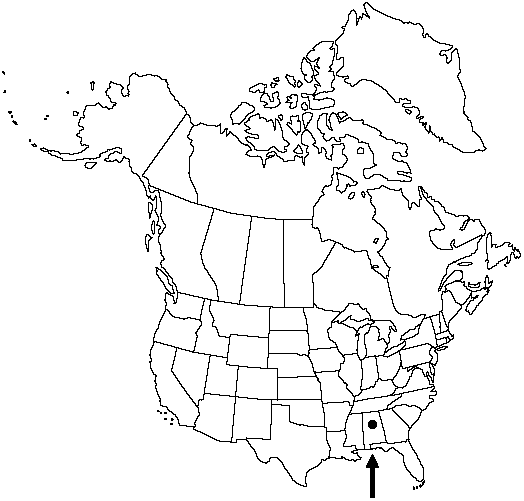Thelypteris pilosa var. alabamensis
Amer. Fern J. 41: 19. 1951.
Stems short-creeping, 1.5–2.5 mm diam. Leaves monomorphic, evergreen, clustered, 0.1–1 cm apart, 10–45 cm. Petiole straw-colored, (1.5–)5–20 cm × ca. 1 mm, at base very sparsely set with ovate-lanceolate, hairy scales; blades linear-lanceolate, to ca. 30(–40) cm, slightly narrowed at base, proximal 1–3 pinna pairs slightly shortened, gradually tapered to pinnatifid apex. Pinnae spreading, rounded at tip, 0.5–3 × 0.5–1.3 cm, proximal pinnae stalked to 3 mm, distal pinnae broadly adnate and basiscopically decurrent, crenate or incised 1/4–1/2 width or single basal acroscopic segment on proximal pinnae nearly or quite free; segments somewhat oblique, rounded at tip; proximal pair of veins from adjacent segments running to sinus or nearly so. Indument on both sides of thin to stout hairs mostly 0.2–1.5 mm on costae, veins, and blade tissue. Sori elongate along veins, lacking indusia; sporangia often minutely hairy on capsule, hairs 0.1–0.2 mm.
Habitat: On sandstone cliffs in river gorges
Elevation: 150 m
Distribution

Ala., Mexico in Chihuahua, Sonora.
Discussion
Thelypteris pilosa is included in the Asian and African genus Stegnogramma by K. Iwatsuki (1964). Variety alabamensis differs from var. pilosa in Mexico and Central America by the much narrower blades, spreading (vs. ascending) pinnae with rounded tips, and free or nearly free basal acroscopic segment on the proximal pinnae. The Winston County, Alabama, populations are remarkably disjunct, about 2000 km from the nearest Mexican populations of both varieties.
Selected References
None.